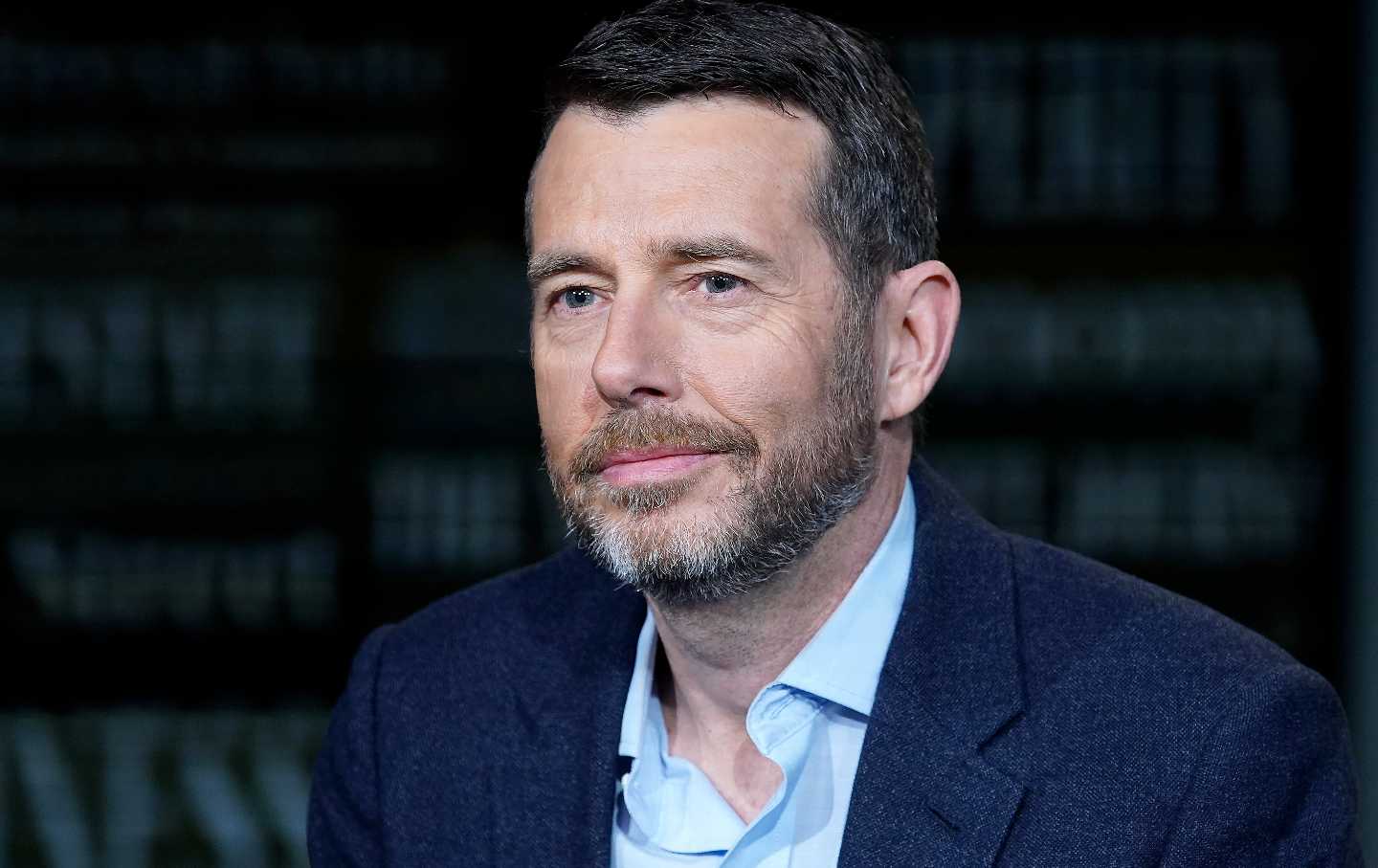Breaking the grip of grifters who refuse to learn or leave won’t be easy. But it is essential to effectively opposing the coming plutocracy.

Democratic political consultant David Plouffe doesn’t think he did anything wrong.(John Lamparski / Getty)
Even if you’ve spent the past month hiding under the covers, it would still have been hard to miss the arguments—including some spirited entries by my Nation colleagues—about the size of Donald Trump’s election victory, and what it says (or doesn’t say) about the existence of a Republican mandate. We can all agree on the following: When the votes were finally counted, (a) Trump got more of them than Kamala Harris; (b) but still not enough to claim a majority, as opposed to a plurality; (c) though clearly sufficient for a victory in the Electoral College (which, sadly, is still how we decide the winner in this country). Republicans also won control of the House and the Senate.
It’s true that on election night, as Harris remained in her bunker, Trump claimed “an unprecedented and powerful mandate.” But I was puzzled as to why so many pundits seemed to think that, of all the lies in all the speeches Trump has made, this one was so in need of rebuttal. And then I realized that this wasn’t really an argument about vote counts, or about whether Harris, who ended up about 6 million votes short of Joe Biden’s total in 2020, had run an effective campaign. (Though faithful readers will recall I believe she threw away a potentially winning economic message in pursuit of the chimera of Republican crossover votes.)
Despite appearances, this at times bruising argument isn’t really about the past at all. What it’s really about is the future, and whether the Democratic Party needs the kind of root-and-branch reform that would allow it to ignore the siren song of the consultant class, which has now led the party to two disastrous defeats. Or whether, to borrow a term from British politics, all that is required for victory is “one more heave”—running the same campaign, but with a bit more vigor than last time. That, in essence, was the message a shockingly unrepentant David Plouffe and his colleagues offered as guests on Pod Save America: Give us the chance to do it all over again in 2028 and we will. Anyone even tempted to credit these grifters should listen to Plouffe’s October episode, “Why You Shouldn’t Panic About the Polls.”
Dislodging the consultant class—and draining the cesspool of dark money that guarantees its continuing influence over Democratic politics—isn’t going to be easy. But it is essential if there is ever going to be an effective opposition to the plutocracy-disguised-as-populism on offer from the Republicans. At the same time, as Tarence Ray argues in this issue, it is just as important to resist the fatalist temptation to simply cede large portions of the electoral map to Republican reaction. Because it turns out that, much like communism, the “red-state voter” is more specter than substance—a scarecrow whose purported prejudices are used to rule commonsense solutions like Medicare for All and real debt relief for hard-pressed students (and their parents) out of bounds.
Trump contrives (or connives) to have it both ways: a detailed manifesto in Project 2025—which might indeed have given him some claim to a mandate if he hadn’t so vigorously disowned it during the campaign—and whatever electoral advantages accrued from his denunciations. The whole exercise turned out to be yet another charade, as Chris Lehmann makes clear in an article lavishly illustrated by Eli Valley.
While we’re on the topic of societal rot, take a look at Eric Orner’s stunning graphic memoir of the day murder came to his hometown of Highland Park, Illinois—and at Mara Kardas-Nelson’s exposé of the way colonial-era legal systems have packed some African countries’ prisons with petty offenders. Not to mention Charles Glass on Israel’s recidivist invasion of Lebanon, Abdelrahman ElGendy on literature after Gaza, and Jorge Cotte on Alfonso Cuarón’s TV thriller Disclaimer.
On a more uplifting plane, Peter Kuper interviews—and pays artistic tribute to—the cartoonist Jules Feiffer; Joan Walsh reveals why she won’t be dancing at any of the inaugural balls; Chris Lehmann (doubling up) dives deep into the decay of our two-party system; and Kim Phillips-Fein limns a suitably heroic portrait of the great labor historian David Montgomery.
Plus some servings of pungent opinions from our columnists, dispatches from correspondents near and far, and—speaking of heroism—John Nichols’s annual Nation honor roll. So if you’re still hiding, it’s time to come out and join the fight. The causes we care about won’t wait another four years—and neither can we.
D.D. Guttenplan Editor
D.D. GuttenplanTwitterD.D. Guttenplan is editor of The Nation.